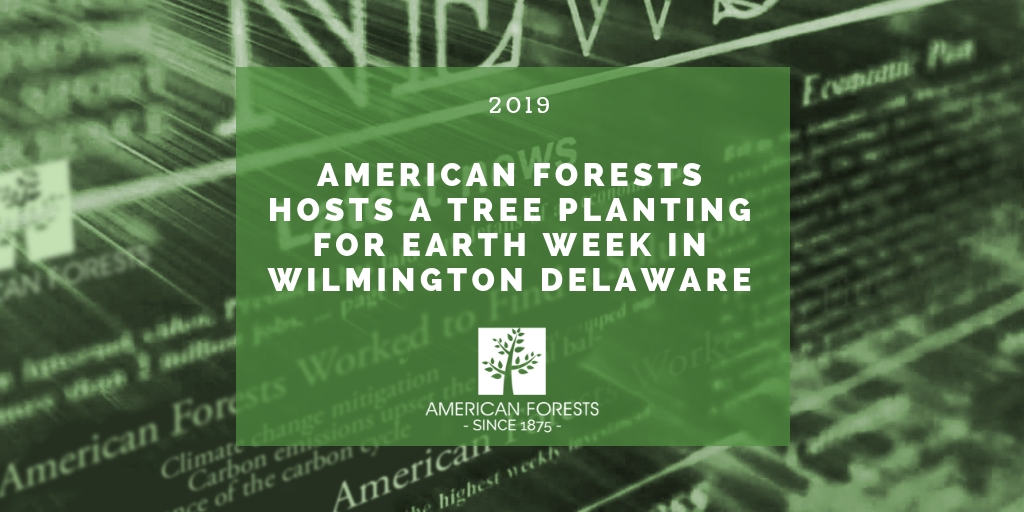
American Forests Hosts a Tree Planting for Earth Week in Wilmington Delaware
With support from JPMorgan Chase, planting event is part of workforce development program, Branches to Chances
(Washington, DC) – American Forests, in its continued efforts to “Reforest America” will celebrate Earth Week with a tree planting event on Wednesday, April 24, 2019, at Speakman Park with volunteers from JPMorgan Chase.
Through this local event, American Forests and JPMorgan Chase will highlight the Delaware Center for Horticulture’s Branches for Chances workforce development initiative. Since 2009, the Delaware Center for Horticulture has offered one of Delaware’s only green jobs training programs for unemployed, underemployed, and previously incarcerated men and women. Graduates leave with marketable skills in a growing industry, the satisfaction of improving the communities they come from, and essential employer references.
JPMorgan Chase, which has a history of advancing environmentally sustainable solutions for clients and its own operations—including a commitment to facilitate $200 billion in clean financing through 2025—is supporting the Branches to Chances program through capital and volunteering activities.
“We’re committed to supporting sustainability in a variety of ways,” said Tom Horne, Delaware Market Leader for JPMorgan Chase. “And this Earth Day, we’re proud to not only help plant trees but to help plant the seeds for a better future for local people who’ve been previously incarcerated.”
Program participants will get hands-on experience with container tree planting, primary tree care/pruning, public landscape installation and maintenance techniques, raised bed-building, and community garden installation/care.
“With the numerous Earth Day events that are happening globally, this one is meaningful because we are in an area of the Northeast that requires awareness of the benefits of a healthy urban tree canopy,” said Jad Daley, President and CEO of American Forests. “This is an all hands on deck location where we can bring thoughtful change makers like JPMorgan Chase and passionate local leaders like DCH to build a healthy community through urban forestry.”
Planting trees on streets and around parks is an effective way to mitigate urban heat and encourage active transport (like walking and cycling). This can effectively make areas safer, more welcoming and attractive for people—and for urban biodiversity that has demonstrable economic benefits to health and wellbeing.
Trees and green spaces are essential for urban sustainability and liveability. Besides cooling the environment, they contribute to managing or improving air quality and stormwater quality and quantity.
###
About American Forests
Founded in 1875, American Forests is the nation’s oldest conservation organization dedicated to protecting and restoring America’s forests, but our work today is more critical than ever because forests are a natural climate solution. Since 1990 alone, we have planted over 60 million trees in forest restoration projects in all 50 U.S. states. We have also worked in dozens of cities across America, expanding tree canopy and making our communities more sustainable, beautiful, and livable. Together, these projects recover hundreds of thousands of acres of wildlife habitat, safeguard vital watersheds, absorb millions of tons of greenhouse gases and protect some of the most stunning landscapes in America.
Since 1977, the Delaware Center for Horticulture (DCH) has cultivated a greener community by bringing people and plants together. Our work includes creating and maintaining the first Urban Farm in the city of Wilmington, creating and supporting over 40 community gardens, beautifying public landscapes, planting and advising on the urban placement of trees, and hosting community events and educational programs, including our Branches to Chances Return to Work program. Because much of our work occurs in low-income neighborhoods with higher rates of disease, environmental contamination, and poor access to healthy foods, our educational efforts also emphasize the personal health and sustainability benefits of gardening.
###